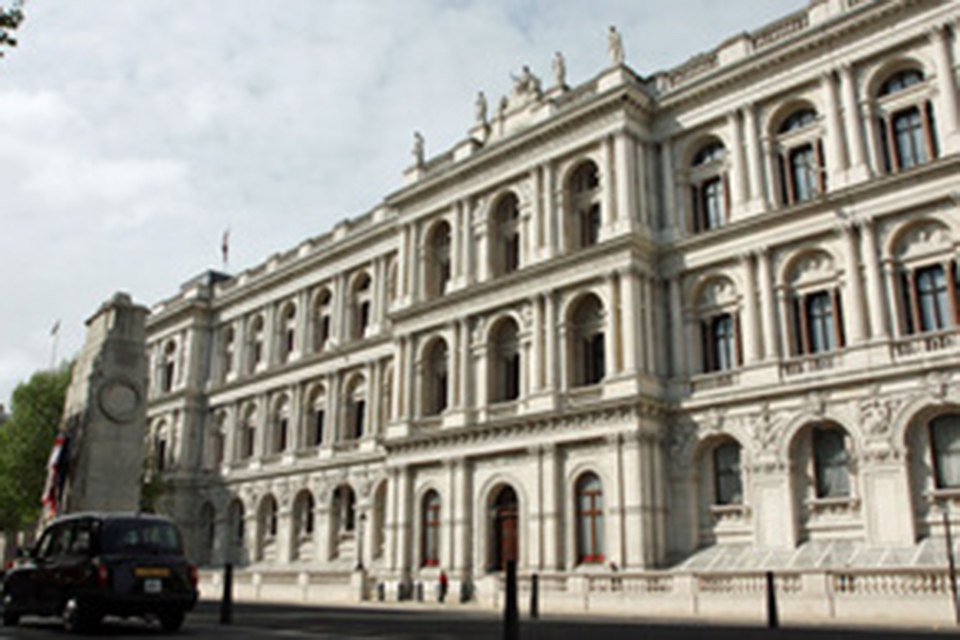Urging substantive peace talks to lead to a two-state solution
Statement by Ambassador Karen Pierce at the UN Security Council Open Debate on the Middle East Peace Process.

Madam President,
I wanted also to join others in thanking the Special Coordinator Mr Mladenov for his briefing and also for the work that he and his team do on the ground. I wanted also to thank Mr El-Ad. Like the French and Swedish representatives, we think it’s important that the voices of civil society can be heard in this chamber and you were invited by the Council.
I do want, if I may, Madam President, just to digress to make a point about these non-Council member speakers, building on the one I made yesterday. This is an open debate. It vitiates the point of an open debate if we cannot understand what is said in the chamber, no matter who it is said by. So I would like to know at some point please what the Israeli PR said to Mr El-Ad in Hebrew and I would also like to make a generic point Madam President, that if speakers use a language for which there is no interpretation that the Presidency of the day stop them and ask them to speak in the Council’s or the UN’s authorised six languages. Thank you.
Turning to the substance, I think Mr Mladenov is absolutely right to remind us that every month we come here and we talk about the same things while everything in the region that we’ve heard today shows quite how desperate and unsustainable the situation is and there are terrible, cruel and sad stories of deaths and injuries on both sides. These underscore the need for urgent progress to end what is a useless cycle of violence and a heart-breaking waste of life and ruined families. And on terrorism, to quote a famous poet, “The gunmen are not dying for the people; the people are dying for the gunmen.” And we ought to bear that in mind as well.
Madam President, we fully respect Israel’s right to security. At the same time, as many speakers have said today, the situation in Gaza is unsustainable. There needs to be immediate improvement in the humanitarian situation. We need political resolve to make these improvements. The reconciliation agreement of 2017 was a good start, but now all the Palestinian factions must implement that agreement. We strongly support the efforts of Egypt and the wider international community to secure this goal with some urgency. And we strongly support the return of the Palestinian Authority to administer Gaza and we continue to encourage all parties to work together to ensure this objective is met.
With other speakers, we remain deeply concerned by the planned demolition of the village of Khan al-Ahmar. And I take this opportunity again to call on the Israeli government not to go ahead with its plans to demolish the village. The decision of the Israeli Supreme Court did not mandate demolition. Demolition remains at the discretion of the Israeli government, and so we appeal to them not to proceed with demolition of this village which is located in an area of strategic importance for the contiguity of a future Palestinian state. Its demolition threatens the prospects for a two-state solution with Jerusalem as a shared capital because as others have said it would pave the way for settlement building in Area E1.
We’ve heard a lot of common themes from the speakers today so I won’t rehearse some of those. I will just say that the Special Coordinator asked us to echo his calls: on both sides to step back from the brink; to uphold the 2014 ceasefire; for Hamas to stop its provocations; on the Israeli side, to restore the delivery of critical supplies, and use proportionate responses in live fire; and on the Palestinian Authority side, not to disengage from Gaza. And I am happy to throw the UK’s voice behind his calls today and to make it crystal clear how strong our support is for you, Special Coordinator.
Madam President, UNRWA was raised, so I will just say that we welcome the increase in donor contributions that was announced on 27 September. These will help meet the immediate needs of the Palestinian people but in the longer term, UNRWA itself needs to continue to prioritize the implementation of cost-saving reform measures, and we will continue to work closely with UNRWA and other donors on the continuity of the essential services.
In conclusion Madam President, like France, we consider ourselves a friend of both Israelis and Palestinians. And like France, we believe that the destinies of these two people are inextricably intertwined. Substantive peace talks between the parties leading to a two-state solution based on 1967 borders, which includes the West Bank and Gaza, is the best way to end this conflict and ensure a sustainable peace. It is the best way to ensure Israeli security, which is absolutely vital, and to achieve a just, fair, agreed, and realistic solution to the Palestinian refugee question in line with the Security Council Resolution 1515. The United Kingdom will continue engaging meaningfully to help bring this about.
Finally Madam President, just to say that I have concentrated today on this subject matter that the Special Coordinator raised and I think that’s right, but other speakers did touch on wider matters. I don’t have time now to go into the issue of child soldiers, but I would just like to put on record that the United Kingdom shares the concerns about these child soldiers.
Thank you very much.